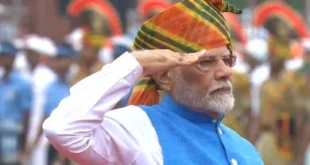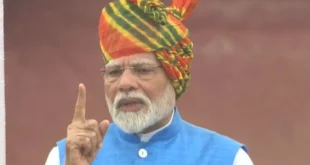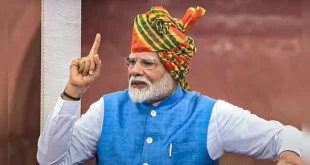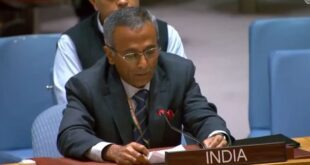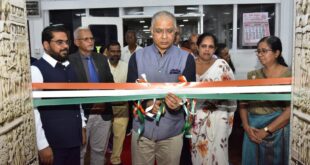Virendra Singh Rawat
Political commentator
The stupendous victory of the Bharatiya Janata Party (BJP) in Uttar Pradesh poll has not only reestablished the credentials of Prime Minister Narendra Modi as the country’s tallest political leader today, it has amply indicated to the opposition camp to either perish or expeditiously reframe their political messaging to convince electorate about their agendas and ideologies.
The slur of communalism and anti-dalit heaped on BJP and especially Modi has simply not worked for the opposition in a highly fragmented and heterogeneous constituency of UP, which has a large population of dalits, other backward castes (OBC) and Muslims.
In UP, BJP even breached the 3/4th majority mark by scooping 325 of the total 403 seats and thus decimating the opposition.
In run up to the state poll, the opposition parties had harked back on their previous and time tested attack on Modi hoping to replicate the success of Bihar, where BJP was trumped by the tripartite alliance of Janata Dal (United)-Rashtriya Janata Dal (RJD)- Congress, in UP. They did not realise that the ground realities in UP were quite different and that BJP had already learnt its lessons.
No wonder that the top opposition leaders, including UP chief minister and Samajwadi Party (SP) president Akhilesh Yadav, Congress vice president Rahul Gandhi and Bahujan Samaj Party (BSP) chief Mayawati, in their rallies, explicitly and implicitly cautioned the electorate against BJP and Modi, especially minorities and dalits.
Mayawati went a step further alleging BJP would quash reservations if it came to power. She also raised issues of alleged atrocities on dalits and dalit students.
In addition, the opposition had over the past several months jointly and severally cornered the Modi dispensation over alleged intolerance in society, raised suspicion over surgical strike across the Line of Control (LoC), supported freedom of speech in largely Left dominated campuses in the context of Jammu & Kashmir and most prominently demonetisation.
Although, BJP continued to win local bodies polls across the country, the opposition parties maintained that it was a mismanaged and uncalled for decision, which had hit the poor and informal sectors hard.
The stark reality is Modi’s opponents refused to remove their dark tinted glasses and to acknowledge the general sentiments on such issues, while upholding their self-righteous narrative over nationalism, freedom of speech, minorities’ right etc.
In this backdrop, the overt and occasionally brazen wooing of the minority votes by SP, BSP and Congress by perceptibly disregarding the majority community, resulted in counter-polarisation, which ultimately proved to be more potent than polarisation, which had always hitherto paid rich dividends to these political parties.
Interestingly, BJP has managed to clock wins even in constituencies, which have sizeable Muslim population of at least 25 percent. So much so, Mayawati on the day of counting on March 11 alleged that electronic voting machines (EVMs) had been tampered with, since BJP had won in several Muslim dominated areas as well, although it had not fielded any Muslim candidate
The UP poll busted the myth of the Muslims as monolithic vote bloc, thus disrupting the poll math of many a party.
The writing on the wall is unambiguous now that the people do not want to be taken for a ride anymore at the whims and fancies of their political masters.
For long, vote banks, especially of dalits and Muslims have been treated as hostage for vested political interests, either by promising preferential treatment/sops or by invoking fear in their minds.
These parties, claiming to be the champion of their rights, have done precious little for these communities other than mere tokenism. Such parties have on most occasions impeded attempts for bringing these communities in the mainstream, while at the same time highlighting their purported alienation for galvanising their vote.
It would be in the interest of these so called ‘secular’ political parties to now reframe their strategies in the light of the changing milieu, wherein their old and weathered definition of what is secular and not, needs to evolve.
People are no longer interested in their fossilised dogmas that seek to dictate their destiny nor are they looking for largesse at the cost of their future generations.
 Politics Insight News Without Politics
Politics Insight News Without Politics
